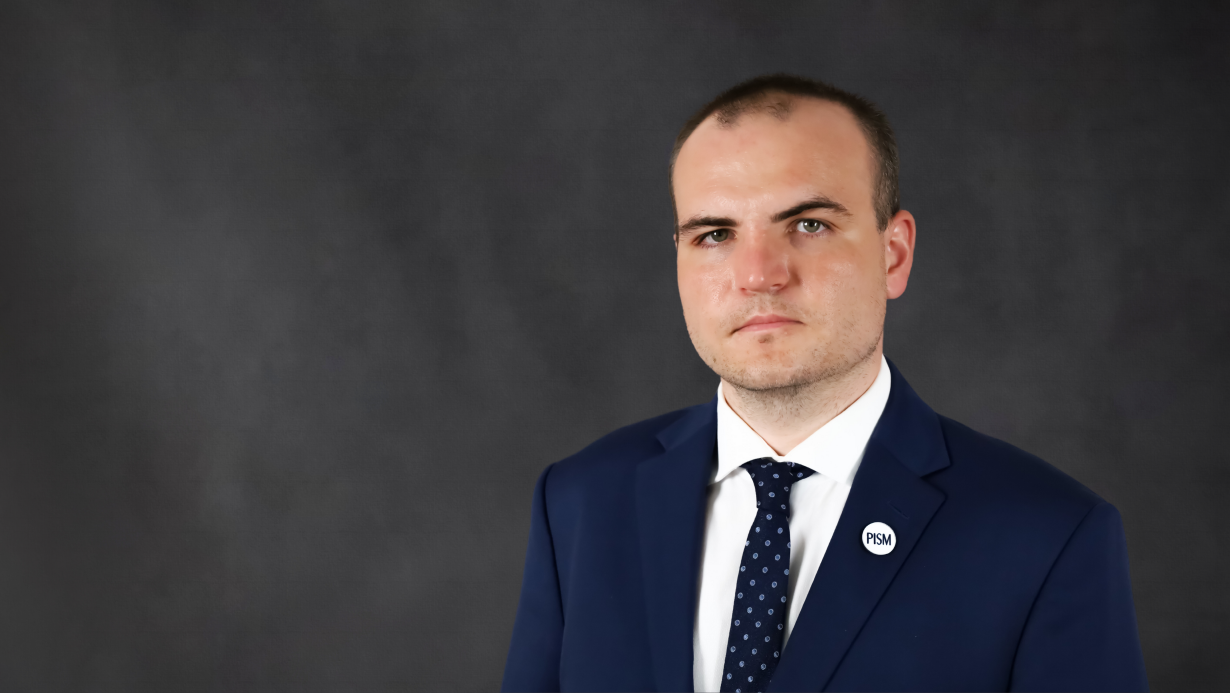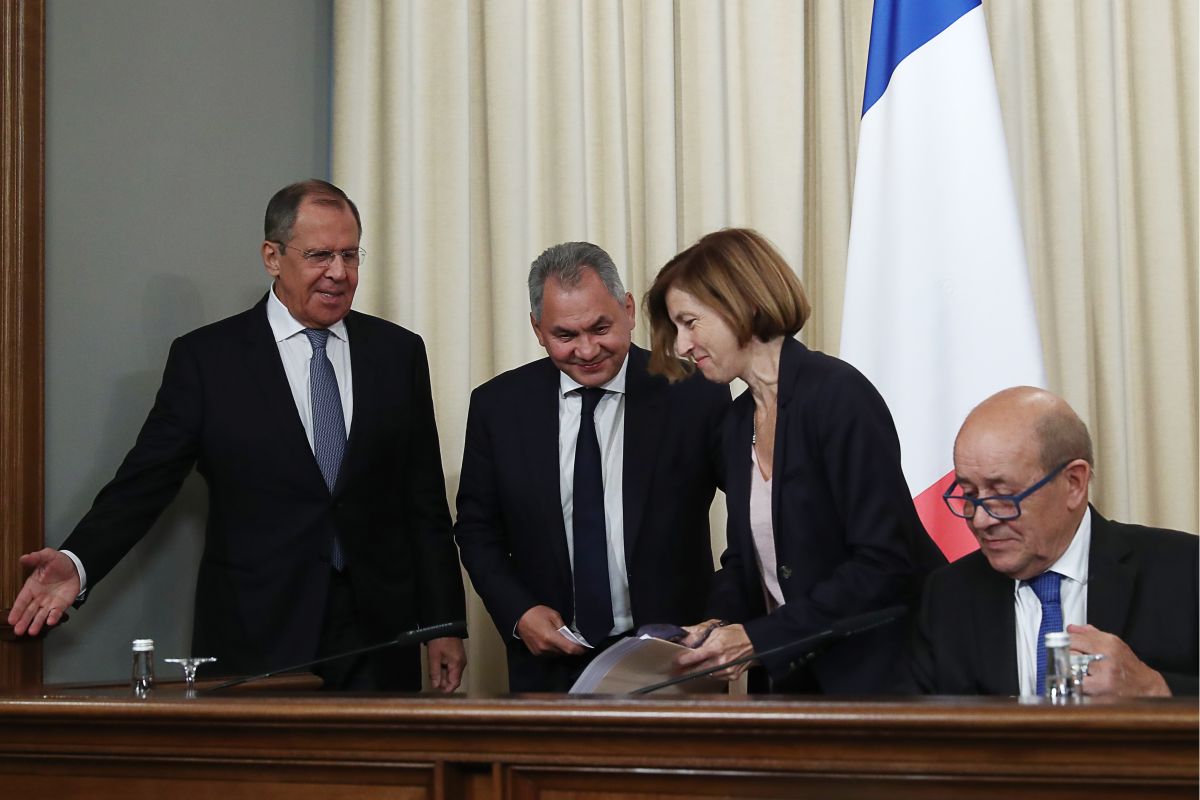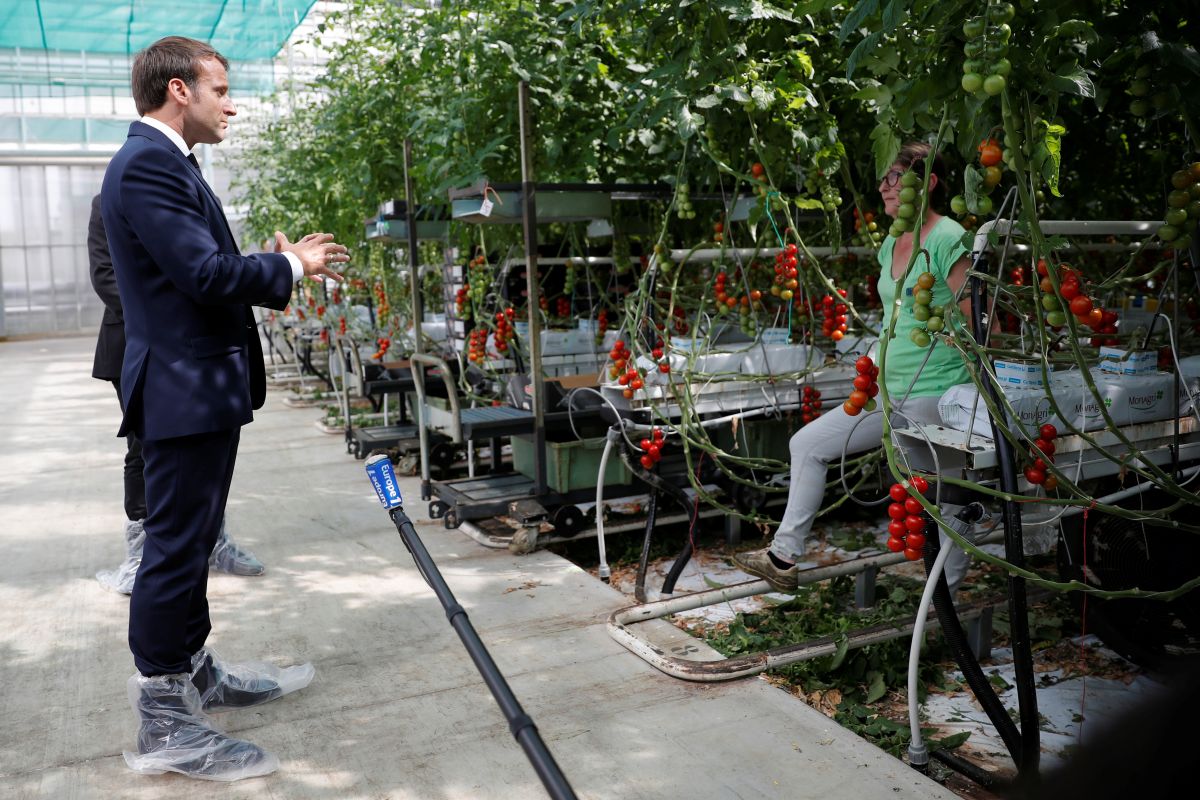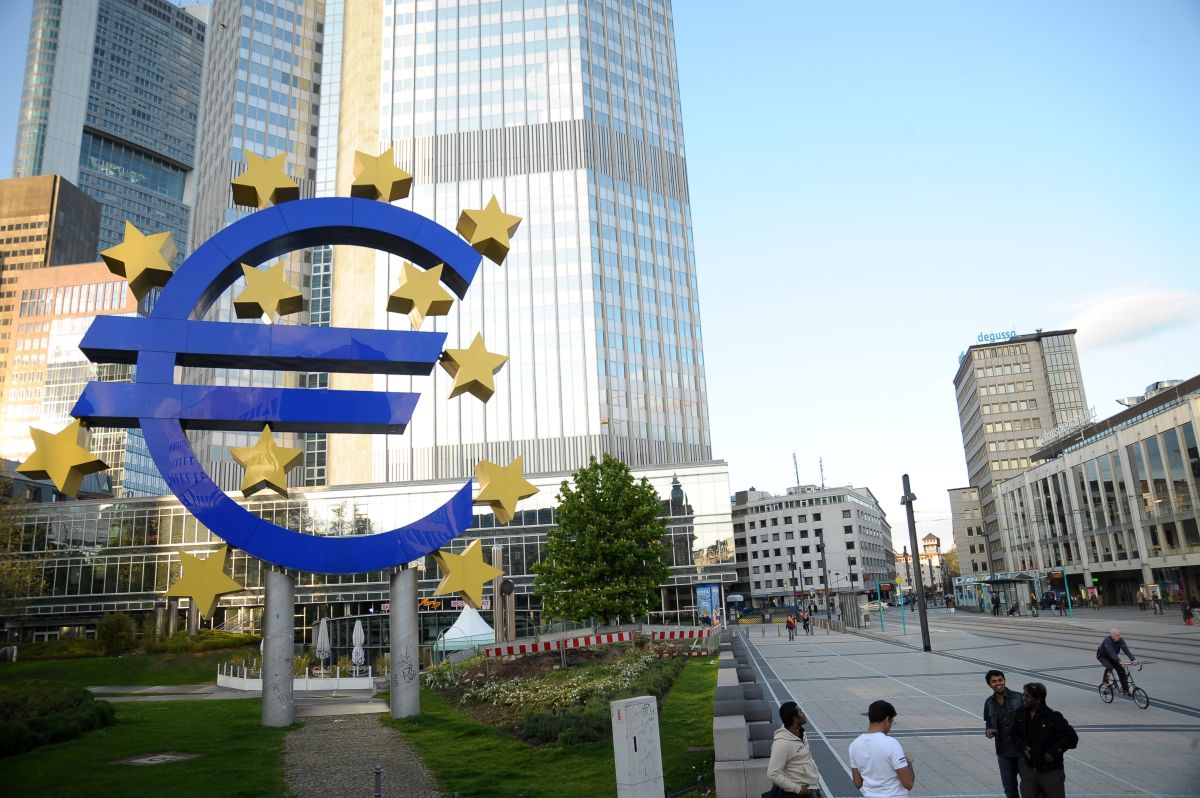War and Elections: French Presidential Candidates on the Russian Invasion
Russia’s attack on Ukraine dominated the French debate in the last month of the presidential campaign and sparked widespread condemnation. Candidates who had previously declared pro-Kremlin views partially modified their rhetoric, while President Emmanuel Macron, who maintains an advantage in the polls, tried to emphasise the lack of a credible alternative to himself. A prolonged war or if fighting spreads to other countries may induce the French to focus even more deeply on security issues. Cessation of the hostilities will stimulate a discussion on the legitimacy of the scale of the adopted sanctions and their consequences for France.
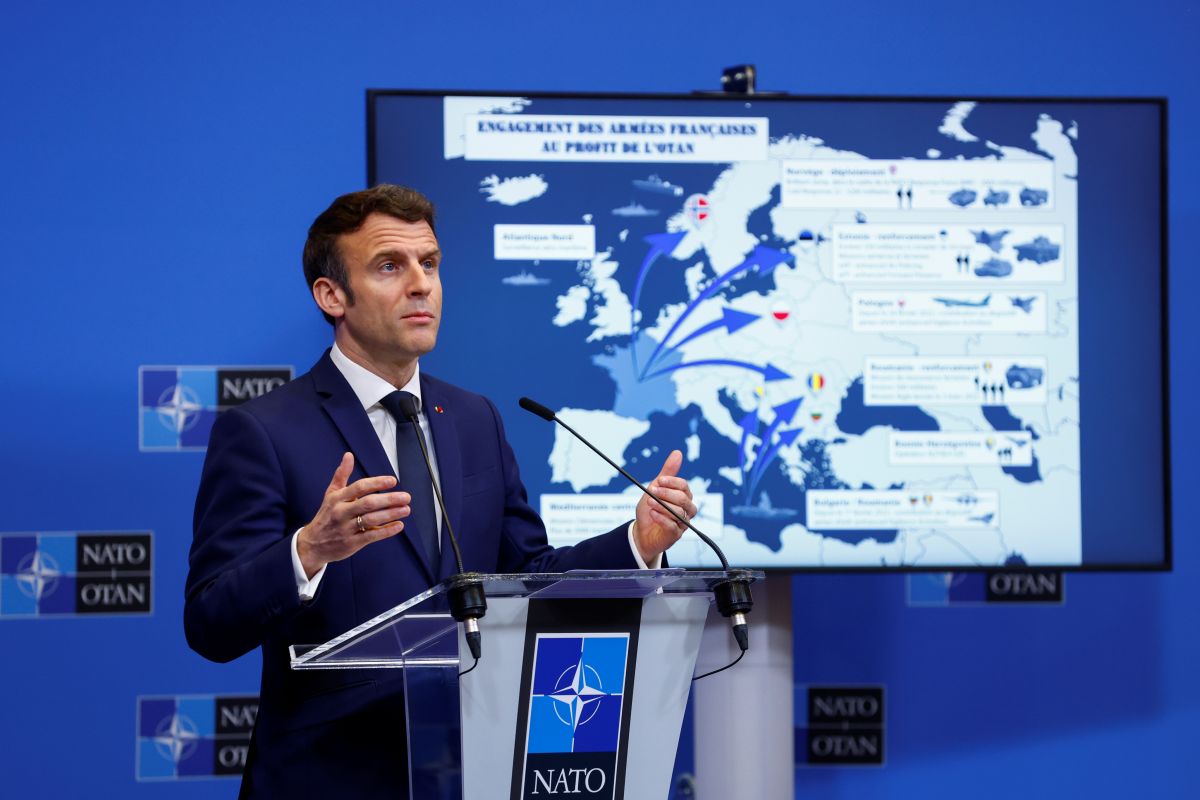 GONZALO FUENTES/ Reuters/ FORUM
GONZALO FUENTES/ Reuters/ FORUM
France joined the EU sanctions policy against Russia after the annexation of Crimea and the war in Donbas in 2014, and accepted the plans to increase the presence of NATO troops on the Eastern Flank. Russia’s actions also harmed French interests, for example in Africa. However, the French authorities had tried to avoid defining Russia as a strategic adversary. For Macron, an important premise for dialogue with Russia was the attitude of the French opposition, most of them more favourable to Russia than he. The Russian invasion of Ukraine forced a change of rhetoric and unequivocal condemnation of the aggression. It also prompted the candidates to present their ideas for securing France against the economic consequences.
Macron Stresses He is Indispensable
The president, running for re-election, has increased his lead over his competitors by about 4 percentage points (p.p.) since the outbreak of the Russia-Ukraine war (to 28-30%). Macron delayed the announcement of his candidacy until the last moment, 4 March, and presented an outline of his programme at a press conference on 17 March. Macron’s diplomatic commitment to try to head off and then end the war should justify his abandonment of a classic campaign, while also emphasising his lead over the other candidates. The government has prepared a “resilience plan” aimed at mitigating the effects of rising energy prices through subsidies.
Macron carefully formulated his position on the Russian invasion so that it would not contradict the mood of the public and conceal the mistakes of his earlier policy towards Russia. The president and government’s condemnation of the aggression is unequivocal, which is in line with the 88% of respondents of a poll from the end of February, as is the consent to accept up to 100,000 refugees (79% of respondents). However, the position on economic relations is more complicated. France supported the imposition of radical sanctions on Russia, which can be perceived as an expression of Macron’s dissatisfaction with the unsuccessful dialogue with Vladimir Putin both before the invasion and to the present. At the same time, many French companies have decided to stay in Russia for now, although a few have suspended their activities. Their decision was supported by the government, which aims to minimise losses for the French economy (although this position may change under the influence of social pressure). Knowing that his most important competitors are opponents of NATO, Macron mostly emphasises the need to develop the EU’s defences, leaving assurances about France’s attachment to NATO to his ministers of armed forces and foreign affairs. At the same time, France has increased its involvement in the defence of the Eastern Flank, although it remains discreet when it comes to the supply of weapons to Ukraine—however, it’s been confirmed that dozens of MILAN anti-tank systems have been delivered to its armed forces.
Macron’s presidential programme emphasises security issues. The president wants to strengthen France’s “independence”, including in the defence sphere. Although he did not announce an increase in military spending beyond the plan implemented since the beginning of his term in office, he promised, among others, to double the number of reservists. In response to reports of serious shortages in the French military of equipment, ammunition, and spare parts, Macron announced an upgrade to the army. For the president, Russia’s invasion of Ukraine is also proof of the necessity to build what he calls “European defence”, foreseen in the EU Strategic Compass, adopted this week during the French EU presidency.
Since the beginning of the war, there has been much concern in France about the role of Russia and Ukraine in the export of grain and the threat of a global food shortage as a result of the war. Addressing this issue, Macron criticised the EU’s “Farm to Fork” strategy, which he charges could lead to an unacceptable drop in food production in the EU.
Opposition’s Problems and Opportunities
Candidates who had previously declared their sympathies with Putin and Russia, including the far-right Marine Le Pen and Eric Zemmour, and the far-left Jean-Luc Mélenchon, are in a difficult situation. Public opinion prompted them to condemn Russia’s aggression, but this does not mean a political turn. The anticipated negative effects of the war on the French economy and Russia’s threats of a nuclear attack have helped Le Pen and Mélenchon articulate their own positions.
From the beginning of the war, Le Pen has expressed concerns about the impact of the new sanctions on French business and exports. She also claims that a too pro-Ukraine approach by the French authorities may hinder their role as an intermediary in peace negotiations. Zemmour stated that the war in the east was taking France away from its interests in Africa. He was also sceptical about accepting refugees from Ukraine, pointing out that they should stay in Poland. Mélenchon, due to the pacifist moods of some of his electorate, criticised Russia’s aggression, but also saw it as a result of what he described as Western mistakes, especially NATO enlargement. According to Mélenchon, France could play a mediating role if it keeps equal distance politically from the U.S. and Russia. The latest polls show a slight strengthening of Le Pen (17-19%) and Mélenchon (12-13%) and a weakening of Zemmour (11-12%). The latter is losing out for his consistently anti-immigration approach, which is contrary to the public’s sympathy for refugees from Ukraine.
The war-focused debate has further weakened the candidates of the moderate right and left. Valérie Pécresse, representing the Gaullist party Les Républicains, was losing in the polls even before 24 February, and after the invasion she had to correct the party’s image after it was accused of having too close contacts with Russia. However, the resignation of former prime minister François Fillon, who supported Pécresse, from positions in Russian companies and the candidate’s demand for sanctions against the aggressor have not appeared to have attracted new voters. For Pécresse, it is also difficult to cite Nicolas Sarkozy’s role as a mediator in the 2008 Russia-Georgia conflict when the former president has not publicly supported her, and it is Macron who negotiates with Putin. Still, Pécresse focuses on criticising Macron’s foreign policy. She blasts the president for not having foreseen Putin’s invasion and aggressiveness, but also for having paid too little attention to contacts with Russia, which she argues should have received guarantees that Ukraine would not become a NATO member. Support for Pécresse is now just 10-12%, which seems to be blocking her way to the second round.
Support for the candidate of the Greens (EELV), Yannick Jadot, also has declined, although EELV consistently opposed France’s rapprochement with Russia. Jadot, as well as the socialist candidate Anne Hidalgo, call for a faster seizure of the assets of Russian oligarchs (France blocked €22 billion in the reserves of the Russian central bank and €850 million in private resources). They both support sanctions against Russia and participated in rallies to support Ukraine. The EELV candidate backs an embargo on oil and gas from Russia and also criticises the links of the French nuclear industry with Russian Rosatom. The EU’s withdrawal from Russian commodities is intended to accelerate the energy transition. The effects of such a radical step, however, raises concerns among parts of the left-wing electorate, so Hidalgo focuses on the demand to limit gas and gasoline prices. Support for Jadot is now at 5-6%, and for Hidalgo at 2-3%.
Conclusions and Prospects
A further escalation of hostilities in the east will raise fears among the French for their own security. The discussion will focus on the effectiveness of the army, the independence of France from Russian commodities, and EU defence cooperation. The main focus of the debate will be the level of France’s involvement in joint EU and NATO activities. Macron, whose chance of re-election is high, will be in favour of maintaining transatlantic unity while keeping open bilateral channels of communication with Russia. The president’s main opponents and supporters of France’s neutrality will be Le Pen, whose chances of entering the second round have increased, and Mélenchon.
A ceasefire would spark a discussion about the need to quickly loosen sanctions and refocus on the EU’s southern neighbourhood. An important topic may be the fate of French investments in Russia, the price of commodities, and the related cost of living in France. The moderate parties, as well as Macron’s camp, may then start calling for the restoration of economic and cultural relations with Russia. The president will then be able to present the continued presence of most French companies in Russia as an asset.


